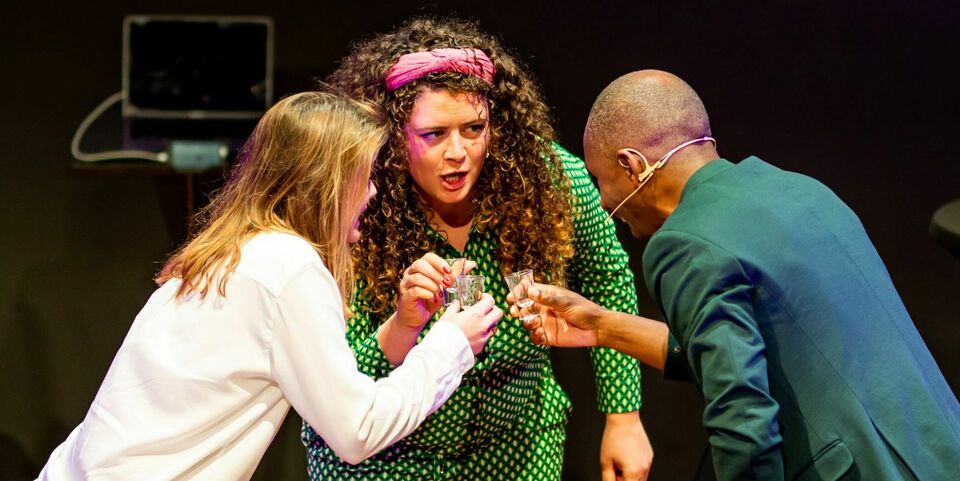‘Who exactly is showing transgressive behavior here?’
Some seventy students attended a performance of theater play ‘TIME OUT: Social Safety at TU/e’ in the Blauwe Zaal yesterday afternoon. Actors tried to prompt a discussion with visitors by acting out scenes and making confessions. When do we speak of transgressive behavior and can we create a socially safe environment for everyone?
A female student who had too much to drink embraces her professor after he agrees to become her supervisor. He puts his hand on her butt. Which one of them is being transgressive here? Or are her fellow students to blame, since they more or less forced her to take a few shots to help her relax before she approached her professor, and since it was their advice to wear a short skirt instead of pants?
The audience could respond to the scenes on stage via Mentimeter. It soon became clear that there were different views on who exactly had shown transgressive behavior. And which criteria does one apply in determining this kind of behavior?
The play was clearly designed to throw the audience off the track on more than one occasion. Was this scene staged, or are we witnessing a spontaneous exchange between the actors? It proved that transgressive behavior is a complicated topic, and that different people can have different perspectives. One of the actors presented a set of rules that guarantees a socially safe environment, but that very same set of rules might also make some people feel unsafe. “Do I continuously need to make sure that I abide by these rules? That only makes me feel deeply insecure and unsafe in this situation.”
Round of Truth
At one point in the play, it was time for the so-called ‘Round of Truth,’ during which the actors read out confessions in an echoing voice. “This shows the audience that we aren’t saints either, and that someone who has been guilty of transgressive behavior in the past can still be a good person.”
Next, one of the actors confessed that, during his time at Vindicat (a notorious student fraternity from Groningen, ed.), he had locked a freshman who had seriously annoyed him in a room for an hour, after which that person decided to leave the association with immediate effect. Another actor confessed to having falsely accused a teacher of physical abuse, after which the departmental board had fired that person. A third confession concerned the rape of a drunken female student and the denial at a later stage that anything had happened that evening. But are we still talking about the victims, or are we focusing too much on showing understanding for the offenders, one of the actors wondered.
Safe Space Coach
The students in the audience were asked whether they recognized these situations. Had they ever crossed a similar border, or did they know anyone in their circle of friends who had done so in their presence? Digital ‘Safe Space Coach’ Dorine, whose task it was to keep an eye on the situation in the background during the performance, had already signed off at that point and only had some rather senseless questions to ask and useless advice to give during the concluding cacophony caused by the actors. The most important question that remained, was whether the students in the audience had access to a real, human Dorine they could turn to for help and assistance in situations during which they may or may not have been the victim of transgressive behavior.
Theater play ‘TIME OUT: Social Safety at TU/e’ was performed twice last Tuesday as part of Diversity Week, which runs until Tuesday, October 11.



Discussion